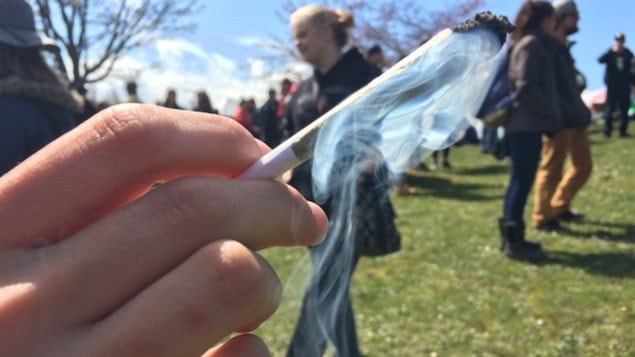A new study suggests that adolescents who go from occasional to frequent use of marijuana increase their risk of having recurrent psychotic-like experiences by 159 per cent. One author of the study say this is “a major public health concern” as the government plans to legalize the recreational use of marijuana in July 2018.
Information was collected from questionnaires filled out annually for four years by 4,000 students beginning when they were 12 years old. As with other studies, the researchers found that about eight per cent of the respondents reported having persistent and increasing psychotic-like experiences.
These include occasional hallucinations or delusional thoughts that are not severe enough to warrant a diagnosis of psychosis.

The researchers then examined what were the factors that would predict who would go on to develop this type of trajectory.
“What we found, like some of our previous studies, was that one of the most important predictors was their cannabis use…It really was the transition to heavy and frequent cannabis use that was the strongest predictor to membership of this category, this trajectory,” said Patricia Conrod, a professor of psychiatry at the University of Montreal and supervisor of the study.
Psychotic-like symptoms can be reported early, study shows
Conrod says the study shows that youth can report psychotic-like experiences long before they develop full-blown psychosis. That means programs to detect early signs could show who would benefit from early intervention to try to stave off the development of full-blown symptoms. It also could help identify who should avoid the use of cannabis.
Further analysis of the data could give clues as to whether a drug and alcohol prevention program was effective in reducing their use by respondents.
A risk for psychosis ‘is very clearly demonstrated’
Conrod hopes this and other studies will be taken into account by those drafting the law to legalize the recreational use of cannabis. “Once we decriminalize, it will be very important to put into place…evidence-based measures and interventions that will protect the population because we know there are some harms that are associated with cannabis. And one that is very clearly demonstrated in the literature now is a risk for psychosis.”
Among other concerns, pediatricians and other doctors have warned that the human brain develops until the age of 25 and that cannabis should not be used before then. The federal government plans to set a minimum age of 18 and it will be up to the provinces and territories to set their own age limits

No comments:
Post a Comment